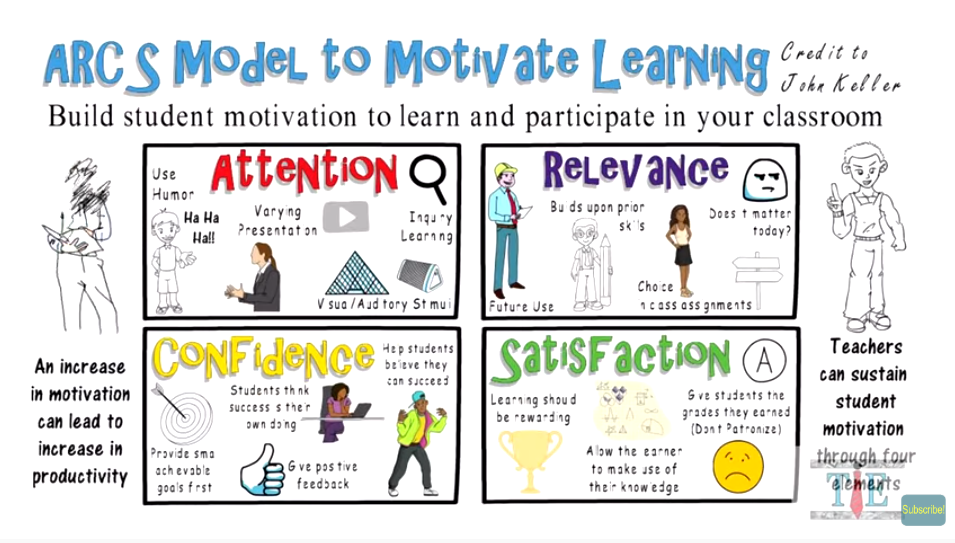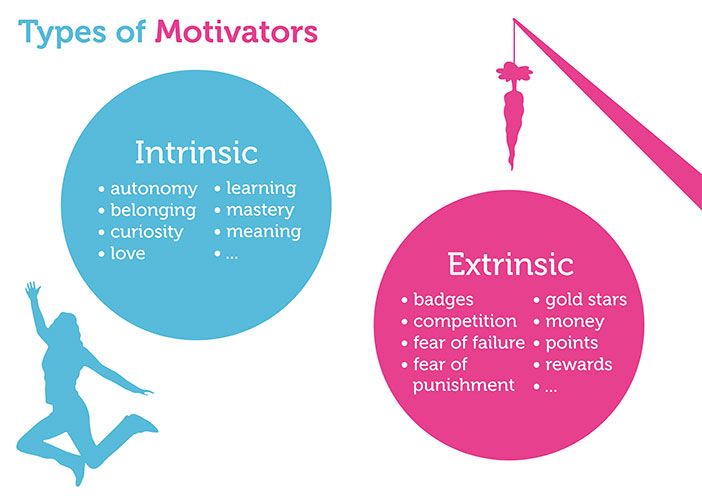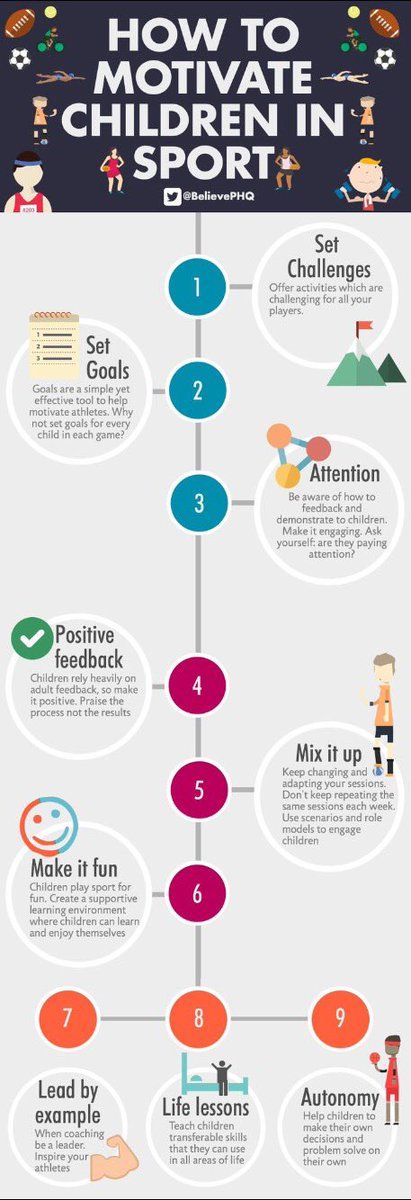How to motivate unmotivated child
Tips and Strategies to Help Motivate an Unmotivated Kid
Have you ever spent more hours than you should putting off something you hate doing? We all have. The truth is, lack of motivation is an issue that affects everyone, but it can be particularly difficult to deal with in kids. The problem is, the absence of motivation in children gets worse with time and can follow them into adulthood.
It is said that motivation must originate from the heart, and that most of the attempts to motivate kids actually demotivate them. While the latter is true, the former has been proven wrong on many occasions. Researchers and psychologists such as Carol Dweck have shown that the use of certain words and the adoption of certain practices can help the unmotivated child.
If you are struggling with unmotivated kids, you know by now that telling them that they “need to work harder” does not increase their motivation. However, years of research on motivation have resulted in some useful strategies every parent with an unmotivated child needs to know about:
1.
We all like doing things we find interesting, and children are no different. They will be more motivated when pursuing activities they enjoy.
- Observe your kids to discover where their interests lie.
- Show interest in their interests, even if those enthusiams differ from what you would like them to be interested in.
- Find ways to link their interests with the other skills you would like them to develop. For instance, comics can be a great way to practice reading skills and gain new knowledge; or encouraging your child to practice music lessons with a friend can help motivate an unmotivated child.
2. Remember that success is everyone’s innate desire.
Unless they’re dealing with specific and often undetected disabilities, most people want to succeed in the activities they undertake. Repeated failure can therefore give rise to frustration and discouragement and can lead to behavior such as tantrums or even constant anger and anxiety.
Children who encounter too much failure can develop learned helplessness, which means that they may learn to perceive themselves as failures. In other words, children may lose their motivation because of a lack of confidence in their ability to achieve specific goals. It is this lack of confidence that can drive behavior such as avoidance, stress, “laziness” and an apathetic attitude.
- Ensure that your kids have opportunities for success.
- Help your children view themselves as a successful person by talking about their successes.
- Set reasonable expectations with challenging but achievable tasks.
- Make sure your children know exactly what is expected of them. For instance, if your unmotivated kids often struggle with homework, make it a habit to go over and explain what is expected every time they have homework.
3. Provide opportunities to motivate your child.
My son developed an interest in creating video games after watching videos developed by kids his age.
- Exposing your children to others’ achievements in their fields of interest is a good way to motivate them. However, this does not mean comparing your kids to others or expecting them to achieve the same goals as others.
- Remember that providing opportunities to see others succeed — which can be achieved through watching movies, reading books and stories, etc. — can help reduce your child’s lack of motivation.
4. Don’t give them the “motivational talk.”
One thing science (and no doubt many parents!) has found over the years is that the “motivational talk” rarely works. Despite your best intentions, talking to your kids about the importance of effort is not likely to make them change their ways.
- Instead of focusing on past performance, focus on future performance — “What do you think you can do differently?”
- Instead of speaking for your children, encourage them to assess their performance by themselves. Remember that there are several age-appropriate resources capable of helping your children reflect on their performance and develop a growth mindset.

- Instead of the motivational talk, let your children know that you know they have what it takes. You could say something like “You just haven’t figured it out yet, but I know you will.”
5. Offer encouragement and support.
It’s normal to get frustrated when our kids show a lack of motivation. Not knowing how to motivate them gets us even more frustrated! The important point to remember is that there may be a number of reasons for kids’ lack of motivation: lack of confidence, lack of participation in decisions concerning them (when homework should be done, when video games can be played, the consequences of not sticking with expectations, etc.), frustration, disappointment, among others.
- Everyone experiences failure and most people experience failure repeatedly before they achieve success. Talk to your children about your own failures. Let them understand that failure is a part of life. Let them know that our failures do not define us — they make us stronger.
 Successful failures abound, such as those encountered by people who went on to become the celebrities they are today. Talk to your children about those failures.
Successful failures abound, such as those encountered by people who went on to become the celebrities they are today. Talk to your children about those failures. - Comment on the positive changes you observe in your kids even if those changes do not immediately lead to an improvement. If you notice your children putting in greater effort, tell them. If you see them trying harder, acknowledge it. If you observe them trying a different approach, let them know you’ve noticed. Remember, though, to praise the effort and not the child.
6. Don’t forget that kids will be kids.
Wouldn’t it be great if our kids responded to our every instruction and did things exactly (or even better) than expected? The reality is that kids do not have the same conception of things as adults. They do not necessarily understand why they have to learn about certain things and telling them those things are important is unlikely to change their perception.
- Find ways to make whatever your children are learning interesting.
 If they're taking music lessons for example, working on a song they like may be more motivating than having to stick to a specific workbook.
If they're taking music lessons for example, working on a song they like may be more motivating than having to stick to a specific workbook. - There are so many ways to learn the same thing. There are good movies that teach history; your kids can be taught to count using Legos; children’s executive function skills can be developed through fun “color, cut and glue” activities. If your child has a hard time staying focused or interested t in a particular activity, try different ways to tackle the same activity.
- Remember that kids will always be more motivated by things they enjoy, and that’s hardly surprising. Cut your children some slack and let them enjoy the things they like. Remember that expecting certain things from your kids can cause more harm than good.
- Don’t let criticism and disappointment be the only things your children remember of their childhood.
- Change your perception of your child’s behavior. Some procrastination and a lack of motivation are normal in kids and adults alike.
 Why would your child be any different?
Why would your child be any different?
7. Focus on your child’s strengths.
There is evidence that strength-based parenting can help increase your child’s happiness and satisfaction in ways you never thought possible.
- Place your child’s strengths at the center of your parenting approach. Remember that children need to encounter success (even in a few fields) rather than to perceive themselves as mediocre in all fields.
- Even the most destructive children can undergo a transformation once they find where their strengths lie. Do not forget that recognizing your children’s strengths helps build their self-esteem.
8. Be willing to give up the driver’s seat.
Why is kids’ motivation such a big issue? Why do teachers and parents struggle to motivate kids? Science says that one of the main reasons we struggle with our children's motivation is because we want to “dictate” everything that they should do. We want to dictate when they should do their homework, when they can watch TV or play video games, when they can see friends and so on. But here’s the thing: The more kids feel that they have no say in decisions that concern them directly, the less likely they are to stick to those decisions, and there is evidence to prove that.
But here’s the thing: The more kids feel that they have no say in decisions that concern them directly, the less likely they are to stick to those decisions, and there is evidence to prove that.
- Don’t do everything for your kids — you’ll only teach them to become dependent.
- Letting your children participate in the decision-making process will work wonders for their motivation.
- Remember that negotiation is a powerful tool that can help resolve your family’s conflicts and reduce power struggles.
9. Be clear about what is non-negotiable.
Did you know that science has found that your expectations have a great impact on your child’s behavior and performance? The problem is, our kids do not always know what is expected of them because we don’t always clearly voice our expectations.
- Be clear about what is non-negotiable and let your children know what is expected of them. If they are not allowed to drop an activity until a specific period is over (for instance one semester/one school year), let them know before they sign up.
 However, be flexible — if the activity is really making them miserable, be willing to negotiate.
However, be flexible — if the activity is really making them miserable, be willing to negotiate. - If you expect your children to participate in household chores, let them know, but remember that you’re bound to get more by allowing them to choose, to a certain extent, the chores they take on.
10. Seek professional help.
One thing we rarely hear about concerning kids’ lack of motivation is that it may point to undiagnosed learning disorders or attention-related problems.
- Certain disorders can manifest themselves in behavior such as lack of motivation, procrastination and major difficulties in concentration. The problem with these disorders is that they can lead your child to give up because of constant failure.
Do not hesitate to contact a professional if you feel overwhelmed by your child’s lack of motivation. A professional will help you determine whether or not your child has a learning disorder or other issues and, more importantly, how you can help that child.
No one said motivating your child will be easy, especially if you are dealing with a long-existing problem. Do not forget that changing habits takes time. Celebrate your successes and don’t lose heart when progress seems slow.
How to Motivate the Unmotivated Child
Over the years, many parents have asked me why their kids aren’t motivated and what they can do about it. How can you get your child to be more motivated? To do better in school? To even go to school?
The important thing to remember is this: your child is motivated. They’re just motivated to resist you and others when they do not want to do something. The key is to learn how to turn their negative motivation into a positive one.
Lack of Motivation is a Form of Resistance
When kids won’t get out of bed, won’t do their homework or school assignments, or won’t get involved in activities, it’s important for parents to realize that there is motivation in the child. But the motivation is to resist. The motivation is to do things their way, not yours. The motivation is to retain power.
The motivation is to do things their way, not yours. The motivation is to retain power.
When kids feel powerless, they try to feel powerful by withholding. A child or teenager who feels very powerless will stay in bed, not go to school, avoid homework, sit on the couch, and withhold overall involvement because it gives her a sense of being in control.
To the parent, the behavior looks completely out of control. But the child sees it as the only way to have control over what’s going on around him.
You’ll see it when you ask your child a question and he doesn’t answer, but you know he heard you. What’s that all about? That’s a child withholding an answer to feel powerful. When he says, “I don’t have to answer you if I don’t want to,” you see it as a lack of motivation. He sees it as a way to win control over you.
All Kids are Motivated by Something
I want to be clear about this point: everyone is motivated. The question is, motivated to do what? If a child looks like he’s not motivated, you have to look at what he’s accomplishing and assume that this is what he’s motivated to do.
So part of the solution is getting him to be motivated to do something else. To assume that the child is unmotivated is an ineffective way of looking at it. He is motivated. He’s simply motivated to do nothing. In this case, doing nothing means resisting and holding back to exercise control over you.
Kids Resist Because They Lack Problem-Solving Skills
The child who uses resistance as a form of control lacks both social skills and problem-solving skills.
They don’t have the social skills to know how to talk to other people, how to be friendly, and how to feel comfortable with themselves. Also, they don’t have the problem-solving skills to figure out what people want from them, how to deal with other people’s behavior, and how to meet expectations and demands.
These are basic skills we all have to learn in order to be successful as adults.
If continually resisting is how a child tries to solve problems, then parents will have a hard time until they teach the child how to solve problems appropriately.
The first step in teaching kids problem-solving skills is to understand that these kids are not helpless victims. Instead, they’re simply trying to solve problems in an ineffective manner.
Don’t Argue or Fight With Your Child About Motivation
Very often these kids are motivated by the power struggle. They find different ways to have that struggle with their parents. The job of the parents, therefore, is to find other ways for the child to solve the problem that’s causing the power struggle.
But if parents don’t have those other ways then the power struggle continues with no end in sight.
If you’re fighting day after day with a kid who won’t get out of bed, you’re never going to solve that problem. Because even if he gets out of bed then he won’t brush his teeth. And even if he brushes his teeth then he won’t comb his hair. Or he won’t wear clean clothes, or he won’t do his homework.
Understand that when you yell at your child for lack of motivation, you’re giving their resisting behavior power. So don’t yell. Don’t argue. Don’t give their resisting behavior power.
So don’t yell. Don’t argue. Don’t give their resisting behavior power.
I understand that parents get frustrated—that’s normal. And sometimes you will lose your calm, even when you know better.
The point I want to make here is that yelling and fighting won’t solve the problem. If you’re yelling and fighting over these issues, you’re giving him more power in the struggle, and you don’t want to do that. Here’s what to do instead.
Be Clear, Calm, and Give Consequences for Your Child’s Behavior
Make the situation clear for the child. Use “I” words. Say the following:
“I want you to get up out of bed and get ready for school.”
“I want you to do your homework now.”
Then leave the bedroom. If the kid doesn’t do it, then there should be consequences. There should be accountability.
If your child says, “I don’t care about the consequences,” ignore her. She will tell you she doesn’t care just as a way to feel in control. Or, she may not care now, but as consequences get applied consistently, she will eventually see compliance as a better alternative to consequences.
Or, she may not care now, but as consequences get applied consistently, she will eventually see compliance as a better alternative to consequences.
Therefore, give consequences. And don’t worry if the kid doesn’t like it. You are not your child’s friend, you’re their parent.
Related content: Unmotivated Child? 6 Ways to Get Your Child Going
By the way, if your child doesn’t get out of bed, he shouldn’t be doing anything else. He shouldn’t get to play video games. He shouldn’t spend four hours in front of the TV. If he’s too sick to go to school, he shouldn’t be going out of the house. These rules should be set and enforced consistently.
Give Effective Consequences
Understanding what is and what is not an effective consequence is critical. The right consequences actually motivate your child to good behavior. They put you back in control and teach your child how to problem-solve, giving your child the skills needed to be a successful adult.
Know that effective consequences are not punishments. Indeed, I say all the time that you can’t punish your child into behaving better.
Indeed, I say all the time that you can’t punish your child into behaving better.
All parents should read my article on how to give kids consequences that work. And take a look at my sample video from The Complete Guide to Consequences.
Let Your Child Experience Natural Consequences
I would always tell parents in my office that you have to have the courage to let her experience the consequences of her behavior. It takes a lot of courage for a parent to step back and say:
“Okay, you’re not going to do your homework, and you’re going to get the grades that reflect that.”
But in these cases, it can help to let the child experience the natural consequences of resistance. You don’t let the kid watch TV. You say:
“Homework time is from six to eight. And if you don’t want to do your homework during that time, that’s fine. But you can’t go on the computer, you can’t play games, and you can’t watch TV. If you choose not to do your homework, that’s your choice. And if you fail, that’s your choice too.”
And if you fail, that’s your choice too.”
Remember, natural consequences are an important part of life. That’s why we have speeding tickets. A speeding ticket is a natural consequence. If you go too fast, the policeman stops you and gives you a ticket. He doesn’t follow you home to make sure you don’t speed anymore. He lets you go. It’s your job to stop and take responsibility. If you don’t, you’re going to get another ticket fifteen minutes later.
Natural consequences help people take responsibility, and they can be used to help kids take responsibility for things like going to school, participating in class, and doing homework.
Don’t Forget to Use Rewards
Along with the plan to let her experience the natural consequences of her decisions, build in rewards for success if she does make the right decision.
For example, if my son failed a test, there was no punishment. But if he passed, there was a reward. It was very simple. We rewarded A’s and B’s. We didn’t take anything away for C, we just didn’t reward it.
We didn’t take anything away for C, we just didn’t reward it.
So my son eventually strived to have A’s all the time. So with kids who resist, it’s important to have a rewards system as well as a consequence system.
Be Patient and Persistent
Calmly and consistently using effective consequences is your fastest and best way to get your child motivated. Just be patient and persistent as consequences do their job and your child begins to learn better problem-solving skills. And know that the vast majority of kids come around and get motivated once they are held accountable in a meaningful way.
Related content: Motivating Underachievers: 9 Steps to Take When Your Child Says “I Don’t Care”
Teaching a child who is not motivated to learn
Over the past 16 years, I I work in a non-state system education. Teaching in underclasses private school classrooms in itself suggests individual approach to each student and, natural, permanent painstaking building an individual development trajectory each child, taking into account their characteristics and abilities and based on the goals and objectives of training.
My specialty is teaching disciplines loved, as a rule, by the majority students and do not require significant teacher efforts to build motivation and cognitive interest (geography, biology, ecology, natural science and the environment). That's why a year ago I found myself in a situation caused me not only difficulties, but bewilderment and confusion. Today, a year later, I would like to share with my colleagues how I have successfully dealt with this problem.
So what's the point? Beginning of the school year, 2 Class. A new student appears in the class, let's call her "Light". A child from a very intelligent and a fairly well-known acting family today, educated, kind, bright, smiling girl, very creatively gifted - she sings beautifully, successfully plays the piano, wonderful plays in school plays and musicals, often performs with parents at concerts and various festivals. At the same time, not spoiled at all, not spoiled by glory, neither her nor her parents. Obedient, non-conflict, non-lazy and not stupid. The perfect child, you say. Yes, lovely creation, but… absolutely unmotivated to learning! I can't say that in the 18 years that I I work as a teacher, I came across only “white and fluffy” kids, potential honors students and "Znaiki". Of course not. Like all of you, colleagues, there were different students, including very difficult children in every way. But such as "Sveta" - did not have!
Obedient, non-conflict, non-lazy and not stupid. The perfect child, you say. Yes, lovely creation, but… absolutely unmotivated to learning! I can't say that in the 18 years that I I work as a teacher, I came across only “white and fluffy” kids, potential honors students and "Znaiki". Of course not. Like all of you, colleagues, there were different students, including very difficult children in every way. But such as "Sveta" - did not have!
I work with educational and methodological set "World around" copyright team of A. Vakhrushev within the educational School 2100 system. And the content of this academic discipline, and the quality of teaching materials, and the concept “Schools 2100”, and my already rich enough experience work can successfully teach children, develop them and give room for them self-improvement. Children in the classroom the environment is always wonder they open to new knowledge and interested in it receipt. However, work with "Sveta" did not give no positive results: no any support base, 100% non-assimilation new educational material, zero activity. An analysis of the situation showed that the reason lies in deep unmotivated child to learn. Easier saying “Sveta” does not want to learn the new . To say a word, and in lessons in other disciplines the situation was just as difficult.
However, work with "Sveta" did not give no positive results: no any support base, 100% non-assimilation new educational material, zero activity. An analysis of the situation showed that the reason lies in deep unmotivated child to learn. Easier saying “Sveta” does not want to learn the new . To say a word, and in lessons in other disciplines the situation was just as difficult.
It is known that in order to carried out any activity, including including educational and cognitive, it is necessary sufficient motivation. learning process without proper motivation is impossible, in this case, and the training itself is meaningless. Problem needed a solution. And let not immediately, not quickly, not no failures, but it was solved.
So what is motivation? Motivation (from lat. "movere") as such there is an impulse to action; dynamic process of physiological and psychological plan, manager human behavior that determines it orientation, organization, activity and stability; human ability to act satisfy your needs. Psychologists define this term in this way: m motivation are stimuli that cause activity personality and determine its direction. Other In other words, motivation explains the direction action, organization and sustainability holistic activity, striving to achieve a specific goal. The need to form learning motivation in students in general and, in this specific case - in "Sveta", due to updated training content, staging tasks of forming schoolchildren's receptions independent acquisition of knowledge and development active life position. Obviously detection the nature of learning motivation and the meaning of learning for the student in each case plays decisive role in determining the teacher measures pedagogical impact (influence). That's why This is where I started my work.
Psychologists define this term in this way: m motivation are stimuli that cause activity personality and determine its direction. Other In other words, motivation explains the direction action, organization and sustainability holistic activity, striving to achieve a specific goal. The need to form learning motivation in students in general and, in this specific case - in "Sveta", due to updated training content, staging tasks of forming schoolchildren's receptions independent acquisition of knowledge and development active life position. Obviously detection the nature of learning motivation and the meaning of learning for the student in each case plays decisive role in determining the teacher measures pedagogical impact (influence). That's why This is where I started my work.
If we consider learning motivation as an indicator of performance, highlight the following leading motives in teaching child:
- Cognitive motives
- Social motives
- Positional motifs
They are related to the content of the curriculum activities and the process of its implementation and testify to the orientation of schoolchildren to acquisition of new knowledge, learning skills, determined by the depth of interest in knowledge. Cognitive motives also reflect the desire schoolchildren to self-education and self-development.
Cognitive motives also reflect the desire schoolchildren to self-education and self-development.
They are associated with different types of social interaction of the student with others people. For example: awareness of social the need to acquire knowledge in order to be useful to society, the desire to fulfill one's duty, understanding of the need to learn responsibility.
Positional motives are often referred to as social, but I consider it justified to single out them on a separate line. Such motives are based on desire to dominate in the team, to be a leader, they manifest themselves in various kinds of attempts self-assertion.
It is known that by the time of admission to school, as a rule, the child is formed strong enough motivation to learn. Along with this, there is also an objective readiness for school, a certain level of mental development, as well as the availability of knowledge and skills, with with which the child comes to school.
Separate positive and negative aspects of motivation for the teaching of a younger student and its dynamics throughout this age. AT as favorable characteristics of motivation there is an overall positive attitude child to school, the breadth of his interests, curiosity. The breadth of interests is shown and in the not always taken into account the needs of the younger schoolchildren in creative games (especially on heroic-romantic plots, plots from books, movies). In playing these stories the social interests of the younger ones are realized schoolchildren, their emotionality, collective gaming empathy. Curiosity is a manifestation of high mental activities of younger students. Directness, openness, trustfulness younger schoolchildren, their faith in the indisputable authority of the teacher and willingness to fulfill any his assignments are favorable conditions for the development at this age of broad social motives of duty, responsibility, understanding the need to learn.
The motivation of younger students has a number of negative characteristics that hinder learning. So, the interests of younger students insufficiently effective, unstable, that is, situational, quickly satisfied and without teacher support may fade and not resume (learning material and assignments often quickly annoy the student, cause him fatigue). Motives of elementary school students unconscious, they often contain orientation of the student to knowledge as to the result of learning, and not on the methods of learning activities.
Cognitive motives change as follows: younger students from interest individual facts pass to interest in rules, principles. In elementary school age, there are also motives for self-education, but they are represented by the simplest form − interest in additional sources of knowledge, what usually manifests itself in episodic reading additional books.
Social motives develop from common undifferentiated understanding the social significance of learning, with which the child comes to the 1st grade, to a deeper understanding the reasons for the need to learn, to understanding the meaning of the doctrine "for oneself", that makes social motives more effective, more often implemented in behavior. positional social motives at this age are represented desire of the child to receive mainly teacher approval. There is a desire to take certain place in the group of peers, orientation to the opinion of comrades.
positional social motives at this age are represented desire of the child to receive mainly teacher approval. There is a desire to take certain place in the group of peers, orientation to the opinion of comrades.
So what were my goals, gradually shaping "Sveta"'s motivation to training and what methods did I use? I aspired to teach "Light" to learn , while enjoying the process and from the result. Identified three main motives teachings - cognitive, social and positional - I decided to act, respectively, in three directions. Easiest was to work towards the formation of positional motive . "Light" - the child is enough ambitious and even ambitious, therefore it was easy, as it were, gradually, unobtrusively lead her to desire to stand out and assert themselves in the team through successful study, activity in the lesson, etc.
It was more difficult with the formation in pure in the form of social motives , because all conversations on the topic of the need to study in order to occupy a worthy place in society, crashed regularly against the wall of such a “Svetiny” sayings: “I will be a great actress, like my mother and dad. I have talent, but knowledge is not so much important!" Although my arguments that the well-known and public figure that he plans to become "Sveta", representing his country on some prestigious film festival, has no the right to “hit in the face” and hit everyone with their ignorance, "Light" were accepted seriously. I think that even now, a year later, social motives for learning from “Sveta” failed to form properly.
I have talent, but knowledge is not so much important!" Although my arguments that the well-known and public figure that he plans to become "Sveta", representing his country on some prestigious film festival, has no the right to “hit in the face” and hit everyone with their ignorance, "Light" were accepted seriously. I think that even now, a year later, social motives for learning from “Sveta” failed to form properly.
Regarding cognitive motives training, then when forming them, I took into account mainly the specificity of perception of the surrounding world “Light”, tried to look on the world through her eyes, through the prism of her perception and comprehension of the world. The main task was reorient “Light” from the sensual perception to a new level meaningful and holistic perception, as well as form her interest in the educational activities and knowledge acquisition. Let's go role-playing games, press conferences, creative tasks, elements of project activities with mandatory presentation. Possibility Lessons were built on outwardly bright, emotional attractive visual aids, actively multimedia aids were involved. Innings new educational material was carried out exclusively within the framework of problem-based learning, then there is according to the scheme: updating knowledge - joint formulation of the problem knowledge discovery – knowledge co-discovery – independent or joint problem solving – formulation of conclusions – consolidation acquired knowledge. Thus it was decided important learning task. Knowledge gained in finished form, represent for the student much of lesser value than those he "got" independently or in the “discovery” of which he participated. In addition, problem situations deliberately created by the teacher in the classroom, directly stimulate curiosity student and his desire for self-education and self-development, that is, in fact, to the formation sustainable cognitive motivation for learning.
Possibility Lessons were built on outwardly bright, emotional attractive visual aids, actively multimedia aids were involved. Innings new educational material was carried out exclusively within the framework of problem-based learning, then there is according to the scheme: updating knowledge - joint formulation of the problem knowledge discovery – knowledge co-discovery – independent or joint problem solving – formulation of conclusions – consolidation acquired knowledge. Thus it was decided important learning task. Knowledge gained in finished form, represent for the student much of lesser value than those he "got" independently or in the “discovery” of which he participated. In addition, problem situations deliberately created by the teacher in the classroom, directly stimulate curiosity student and his desire for self-education and self-development, that is, in fact, to the formation sustainable cognitive motivation for learning.
What are the results after a year of work? At “Lights” formed educational and cognitive motive not only to new knowledge and not even only to general laws, namely to ways of acquiring new knowledge, appeared actually interest , giving room curiosity and success in mastering new knowledge. In other words, “Sveta” learned study . The positional motive of learning, “Sveta” has become one of the leaders in class. There is still a lot of work to be done, but confidently assert that this child will and continue to be successful in studies, and most importantly will be enjoy the process of learning.
In other words, “Sveta” learned study . The positional motive of learning, “Sveta” has become one of the leaders in class. There is still a lot of work to be done, but confidently assert that this child will and continue to be successful in studies, and most importantly will be enjoy the process of learning.
How to motivate your child to learn: simple ways that will help you
Surely every parent at least once wondered how to teach a child to be independent without hassle and disappointment? How to teach children to do homework with joy, to make the learning process exciting for the children themselves. Our new blogger Anna Chirkova tells how to work with children's motivation.
In recent years, the practice of teachers shows that the number of children who do not seek knowledge is constantly growing. It appears even in primary school students.
The unwillingness to learn is manifested in the fact that children forget to do their homework, their textbooks and desks are messy, they draw in class, look out the window, talk to classmates, they are bored in class. Such children may blame teachers for their poor grades, but most often they do not care at all about poor performance.
Such children may blame teachers for their poor grades, but most often they do not care at all about poor performance.
Why do children not want to study? Even teachers with experience are not always ready to unequivocally answer this question, but we will try to give the simplest and most effective ways to motivate your child.
There are many reasons why children do not want to study. Let's analyze some of them.
What influences the unwillingness to study
1. The child is too small for school. Parents think that their children are ready for school if they see that they know a lot for their age. But even if your child is smart enough, and you think not to take him an extra year to kindergarten, this does not mean that he is psychologically ready for school. Most likely, the child will not be able to obey certain rules. In addition, it is more difficult for young children to sit for a long time in the classroom without moving.
2. Conflicts with teachers. Often, even the teachers themselves are not aware of the conflict with their pupils. They may notice that the student has poor academic performance, his behavior has changed, although, as it seems to the teacher, there was no conflict as such. In fact, the child could hear unpleasant words addressed to him or hold a grudge against the teacher's behavior. The child may feel depressed, feel fear, he develops a negative attitude towards the teacher. In most cases, children do not want to tell their parents about their fears related to school, this preserves the conflict and the difficulties associated with it.
Conflicts with teachers. Often, even the teachers themselves are not aware of the conflict with their pupils. They may notice that the student has poor academic performance, his behavior has changed, although, as it seems to the teacher, there was no conflict as such. In fact, the child could hear unpleasant words addressed to him or hold a grudge against the teacher's behavior. The child may feel depressed, feel fear, he develops a negative attitude towards the teacher. In most cases, children do not want to tell their parents about their fears related to school, this preserves the conflict and the difficulties associated with it.
3. Conflicts with students. If such a problem has already developed, then it can be very difficult to level it without consequences for the child.
4. Physical defects. For example, stuttering, trembling of the limbs, and others. It is very difficult for children to get used to the idea that they are somehow different from their peers. It becomes especially difficult in cases where the shortcomings cause bullying and laughter from classmates. Knowing about his problem, the child does not want to become the center of attention, feel humiliated and once again appear at school.
It becomes especially difficult in cases where the shortcomings cause bullying and laughter from classmates. Knowing about his problem, the child does not want to become the center of attention, feel humiliated and once again appear at school.
5. Family conflicts. Scandals between parents and other family members. Often such a child closes in on himself due to experiences, he not only loses his motivation for learning, he is rarely interested in anything at all.
6. Pressure on the child from parents and relatives . We set high standards for children, sending them to the best schools where education is conducted at a higher level, we enroll in various sections. Just imagine how many sections parents try to send their children to without taking into account the opinion of the children themselves. Parents scream, get indignant, scold children if they bring bad grades or simply do not reach the results of their classmates. Think about it, maybe you are putting too much pressure on the children, forcing them to do what they do not want.
What factors influence interest in learning
1. Interest in the subjects studied . Often, children lose interest in studying some subjects just because they seem boring to children. However, you need to make it clear to the child that in all lessons they provide the necessary information that develops different skills, so it is important to study all subjects. There are many disciplines, the study of which requires more work. In this case, you need to find another motivation. Much depends on the teacher, who is able to explain complex things in simple language and thus simplify the learning process.
2. Method of studying objects . In elementary grades, it is much easier for children to learn with the help of active methods, discussions and games. The teacher should pay attention to the fact that tasks like “rewriting textbooks” and “working on our own” reduce interest in the subject, while creative and various unusual ones, on the contrary, increase.
3. Perception of information . Some children perceive information better through sight, others through hearing, others through images. The effectiveness of teaching children largely depends on the type of perception of information. Parents themselves can choose the ways of teaching the child if they understand his peculiarities of perception of information.
4. Teacher's interest . When a teacher intrigues students with a personal example, shows a positive attitude towards the subject, then children also become interested in what they are taught. When they know that they will hear something funny or interesting in class, they look forward to these items with joy.
What are the types of motivation
Motivation is one of the most important conditions for successful learning. The most significant for students are the following motives:
- cognitive, that is, the desire to know more, to become erudite;
- communicative - expanding the circle of communication through an increase in the intellectual level and new acquaintances;
- emotional;
- self-development - disclosure of one's abilities and talents;
- student position;
- achievements;
- external - rewards, punishments.

In addition, motives are divided into external (social) and internal (cognitive). An example of extrinsic motivation: "I need to pass the exam so that my parents don't scold me." Intrinsic motivation: "I really like literature lessons, so I read every free minute, I learn something new with every book I read."
There are two more types of motivation - stable and unstable. An example of sustainable motivation: "Since the day I entered the drawing school, I have never regretted that I chose this particular section." Unstable: “I went to a concert, I also wanted to play some instrument, I started studying, but after a while I quit.”
Most often, children's motivation is unstable due to the fact that they are very emotional. It is very easy to interrupt old ones with new emotions and impressions. Why is this happening? Often the parents are to blame.
Of course, only you can choose how to properly raise your child, but his and your life depends on this choice. Not all parents realize what mistakes they make in the process of motivating their children. Consider not all, but the most relevant of them, which are most often found among parents.
Not all parents realize what mistakes they make in the process of motivating their children. Consider not all, but the most relevant of them, which are most often found among parents.
1. Lowering your child's self-esteem, programming for failure. This happens when you tell a child that nothing good will come of him, that he will become a janitor if he does not study well. Such words lead to an underestimation of self-esteem, in case of any failures, the child lets go of his hands, completes what he started at the slightest problem.
2. Deception and intimidation . If you use such methods, the connection and trust between you and your child will be destroyed.
3. Excessive requirements, not taking into account the child's capabilities . The parent may think that the child is lazy or “not studying on purpose”, while there may be specific reasons (mental developmental features, illness, fatigue).
4. Gifts in exchange for good academic performance . There are many downsides to this method. The child quickly develops a habit of getting what he wants through good grades. In the future, he may begin to demand a reward and fulfill your requests only after receiving what he wants. Such children are only aimed at receiving presents, and not at good studies.
There are many downsides to this method. The child quickly develops a habit of getting what he wants through good grades. In the future, he may begin to demand a reward and fulfill your requests only after receiving what he wants. Such children are only aimed at receiving presents, and not at good studies.
5. Motivated by success . Often, parents assure the child that all his actions should be aimed at success and high status in society. In the future, such children grow up to be people who do everything for the sake of success and money, and not because it brings them positive emotions or is aimed at helping loved ones.
6. Excessive load in different activities and sections . Modern parents like to plan their children's schedule as tightly as possible so that they spend their time with benefit every day. The child's psyche may not be able to withstand such a load, so you will get a complete lack of interest in classes.
How to increase motivation to study
1.
 Educate your child in a playful way
Educate your child in a playful way Play is a unique instrument of pedagogical influence. If the child does not want to learn or something does not work out for him, you can always come up with a game in which he will be able to complete the tasks you have given.
These can be intellectual exercise games, training games based on competition. They show schoolchildren the level of their preparedness and fitness. By comparing with the opposite team, students themselves see their gaps in knowledge, this encourages cognitive activity in them.
The game form does not involve standard student assessment, so even lagging children can be interested.
2. Support the child in his hobbies
Do not impose your favorite activities, let him pursue his hobby. Help children discover their hidden talents or develop those they already have, let them freely choose what interests them.
3. Small rewards, not big rewards
Encourage your child, praise for the result, but do not do it in the form of money and in the form of expensive gifts. Otherwise, the time will come when the child wants to sell you the results of his labor at a higher price. For example, the rule "For every correct task - 1 candy" works much better than "For every five in the diary - a cake." Candy is a kind of guarantee that difficult homework is done in an atmosphere of trust, which in itself is already a motivation.
Otherwise, the time will come when the child wants to sell you the results of his labor at a higher price. For example, the rule "For every correct task - 1 candy" works much better than "For every five in the diary - a cake." Candy is a kind of guarantee that difficult homework is done in an atmosphere of trust, which in itself is already a motivation.
4. Be interested in what your child has learned in school, not in his grades
Show him how to apply what he has learned, discuss his stories together. Encourage your child to think and discuss as often as possible. Remember that any grades are a subjective thing, this is not an indicator of your child's knowledge, but only his assessment by teachers.
A child does not have to be an excellent student, he has the right to receive bad marks. If he himself was upset because of the deuce - support and never scold. After all, first of all, you should be his friend and partner.
5. Minimize stress
Tell the children how you yourself overcame difficulties in school, how you coped with difficult tasks. Show what you have achieved now that you have walked this path. Talk together about your failures and fears.
Show what you have achieved now that you have walked this path. Talk together about your failures and fears.
The child should always know that he will be heard, and problems will not be exaggerated. Explain that stress is an integral part of life, teach how to cope with it so that in the future the child can overcome it himself.
Motivation for learning does not develop overnight, sometimes it takes a lot of effort and time. If you have missed something in raising your child, it is never too late to start building your relationship on the basis of trust and understanding.
Do not motivate your child with distant and illusory goals that are incomprehensible for his age. Every parent must find where the potential of their children lies. Try to reveal his talents from different angles, give him the opportunity to prove himself. Look for inclinations in your children for some kind of activity, show by your own example that we are learning new things all our lives, that there are many interesting things in life.












